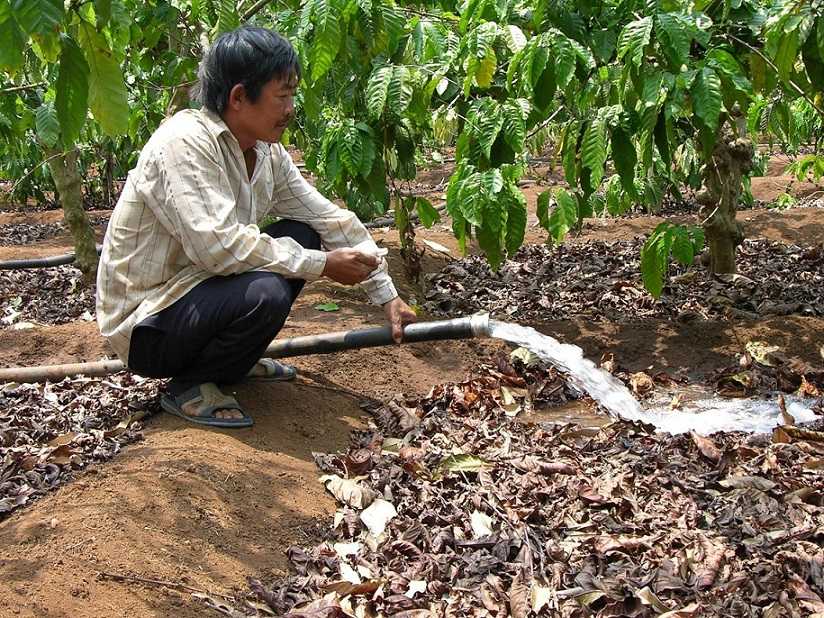Will more be merrier? Not in the case of Vietnam's coffee plantations. Smallholders in Vietnam have been expanding their plantations for higher profits since the coffee commodity boom in the 1990s (from Hall et al., 2011). Such expansion constituting mega-projects has impacts on the global scale. Hence, we will be broadening our lenses to understand the global impacts of Vietnam's coffee mega-plantations.
Mega-plantations (from Miles and Noboru, 2019) is a concept involving the conversion of large acres of land for the farming of cash crops. This concept (according to Hall et al.) is demonstrated in Vietnam, as smallholders were eager to reap the high profits tagged to the coffee beans. Besides profits, the expansion of farmlands were also driven by unsuitable soil conditions as mentioned in the previous post. Consequently, large-scale deforestation took place, replacing 19% of Vietnam's forest (from D’haeze et al, 2005), and releasing tonnes of sequestered carbon into the atmosphere as carbon dioxide, causing air pollution globally.
 |
| Over 1.1 million hectares of degraded agricultural land in Central Highlands, Vietnam. Image by: Nongnghiep, 2020 |
In addition to mega-plantations, the productivity levels of coffee trees play a subsidary role in contributing to the abovementionned air pollution. Typically, coffee trees only maintain their productivity for 15 to 25 years. Within this timeframe, factors like deteriorating soil conditions and water availability concerns may force smallholders to replant their farmlands or abandon it (from Scherr et al., 2015), resulting in the release of carbon, polluting the atmosphere.
 |
| Farmer struggling with drought conditions. Image by: Communicaffe, 2016 |
While skeptics may claim that carbon dioxide is not a pollutant, they are partially right. Carbon dioxide can be categorised as naturally occuring or man-made. Only the carbon dioxide that exist as a result of human activities is considered a pollutant, as it negatively affects the environment and humans via the global warming phenomenon, resulting in undesirable circumstances like extreme weather conditions and impairment of human respiratory health (from Sciencing, 2021).
This second part of the Coffee Farming series explored how the conversion of coffee farms to mega-plantations in Vietnam, and the productivity cycle of coffee trees can cause air pollution, which contributes to the global warming effect. In the last Coffee Farming installment, we will explore the existing measures in place to reduce pollution in coffee plantations.


No comments:
Post a Comment